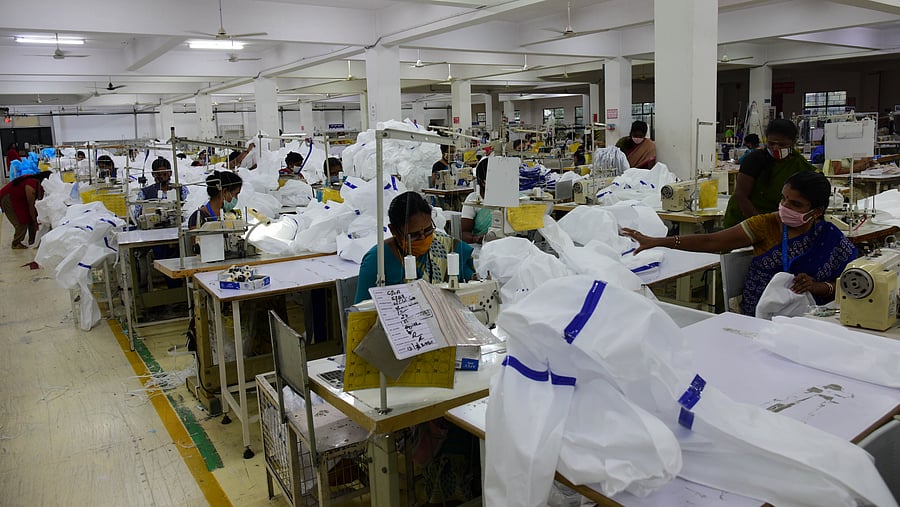
Labour department officials say the weekly working hour limit would remain 48 hours, though the daily working hours limit is being increased.
Credit: DH File Photo
Bengaluru: Trade unions and managements clashed on Wednesday regarding a proposal to increase the daily work hours limit from nine to 10, even as Labour Minister Santosh Lad assured that he would meet all stakeholders shortly and decide on the issue.
During a tripartite meeting of workers, employers and the government convened by the labour department officials, unions slammed the changes as “legally incompatible,” while industries welcomed the amendments, citing “ease of doing business”.
Department officials explained that though the daily work limit was being increased, the weekly work hour limit would remain 48 hours.
Speaking to DH later, Lad explained that Wednesday’s meeting was a preliminary step initiated following the central government’s directions.
“It hasn’t yet been decided if we will implement these recommendations. I will meet stakeholders and decide on the amendments. Even if we consider the amendments, the CM and the Cabinet will be consulted and we will ensure that the common man’s interest is protected.”
IT establishments, bars, pubs, restaurants and retail shops come under the purview of the Act. Sources in the labour department told DH that 20 lakh labourers were working in 5 lakh commercial establishments (4.5 lakh establishments employ less than 10 workers).
In a memorandum to the department, the joint committee of trade unions (JCTU) slammed the amendments for “violating” the ILO-mandated 8-hour workday/48-hour workweek concept and said the proposals breached fundamental rights and directive principles.
This concern stems from the fact that the new amendment seeks to increase overtime from 50 to 144 hours over three consecutive months.
Referring to a report by the Organisation for Economic Co-operation and Development (OECD), the memorandum argued that productivity dropped by 25% after 10 hours of work.
“The 72-hour workweeks increase cardiovascular mortality by 42%. The extension triggers an unemployment avalanche,” the memorandum said.
Centre of Indian Trade Unions (CITU) state general secretary Meenakshi Sundaram said small businesses would be “wiped out of business,” while All India Central Council of Trade Unions (AICCTU) state general secretary Maitreyi Krishnan explained that the move would have a deleterious impact on women’s participation in the workforce and lead to violation of child rights.
The Karnataka State IT/ITeS Employees Union (KITU) dubbed the changes as “undeclared Emergency”.
The KITU said in a press release that increasing the 10-hour work day to 12-hour work day would mean that companies would go from a 3-shift model to a 2-shift model, resulting in 1/3rd of the workforce losing jobs.
JCTU slammed the proposal to exclude establishments with less than 10 employees from maintaining registers and records.
“It’s a blatant attempt to legalise the illegalities related to work hours, non-implementation of appointment letters and non-payment of minimum wages.”
However, representatives of the Bangalore Wholesale Cloth Merchants’ Association assured that they would pay minimum wages. Honorary president of the Bangalore Hotels’ Association P C Rao welcomed the move to exclude smaller establishments.
“A lot of these establishments work with very few workers. How will they be able to furnish all these details?,” he said.
JCTU urged the government to withdraw the proposed amendments and sought an “evidence-based review” by a tripartite committee.
